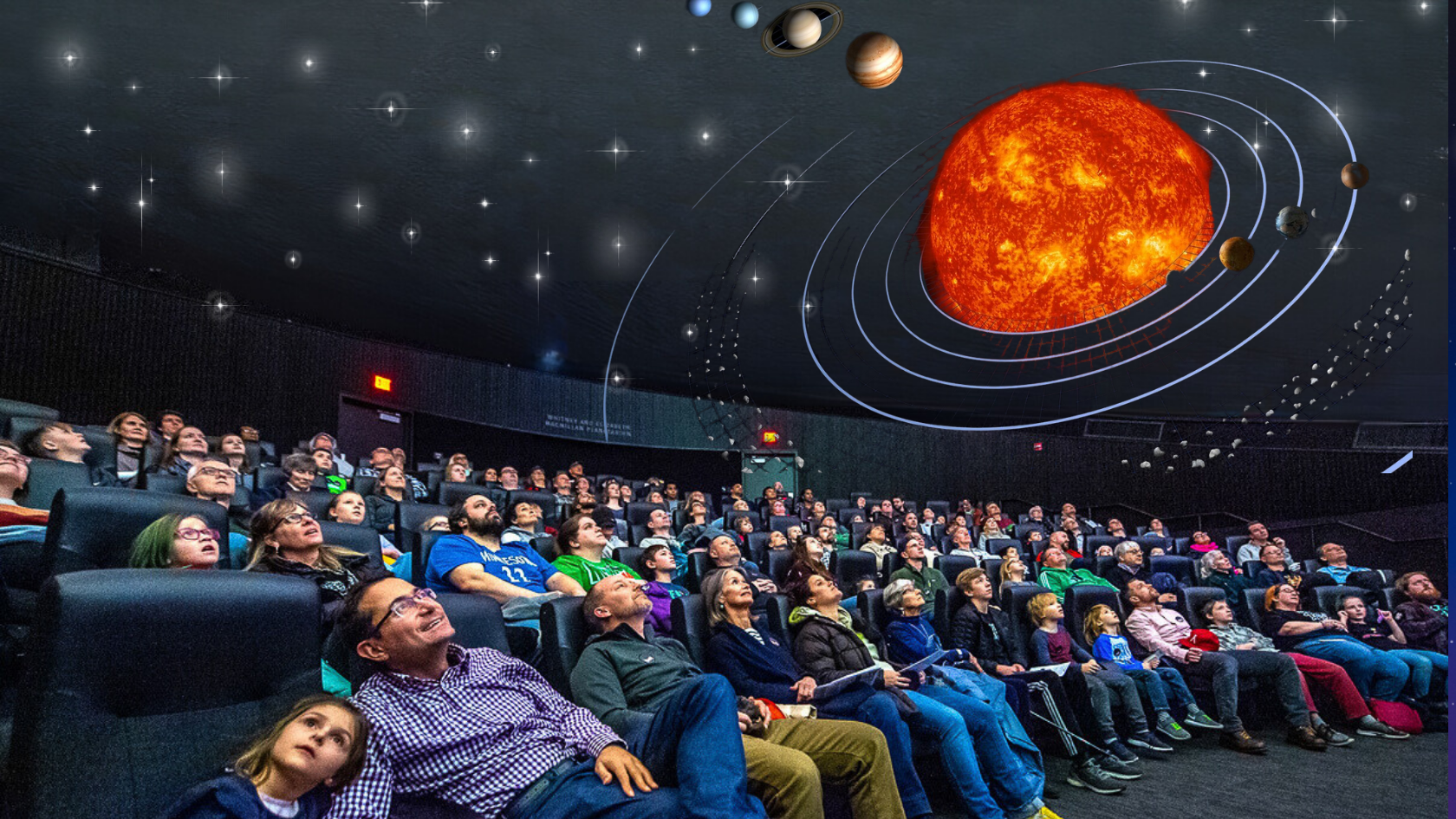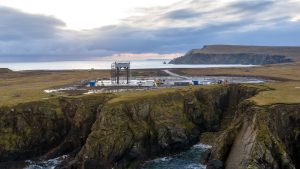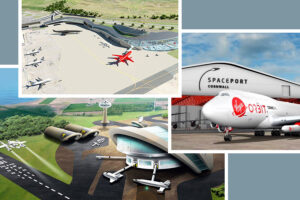A Guide to Exciting Space Events in June 2023
1st Jun 2023
As we enter summer, the vast expanse of the cosmos beckons us with a plethora of thrilling space events. And June promises to be an exhilarating time for space enthusiasts and curious minds alike. Let’s see what it can offer to astronomy aficionados, space enthusiasts, or simply those who are captivated by the mysteries of the universe.
Back to the Moon: The next giant leap for humankind
When: 4 June
Where: Tempest Anderson Hall, Yorkshire Museum Museum Gardens York YO1 7FR United Kingdom
Just over half a century since Neil Armstrong first stepped foot on the lunar surface, a new space race to the Moon is well underway and rapidly gaining momentum. Powerful international and commercial interests are driving this race to revisit the Moon, but lunar infrastructures could also open breathtaking vistas onto the cosmos.
Join renowned astrophysicist Joseph Silk as he lays out a vision for the next 50 years, discussing how the colonisation of the Moon could usher in a thrilling new age of scientific exploration that might help us answer some of the most profound questions confronting humankind, including whether we are alone in the Universe and what our cosmic origins are.
Learn about the daunting challenges and the immense promise of lunar exploration and exploitation, and find out how prioritising science, and lunar astronomy in particular, will enable us to address the deepest cosmic mysteries.
Space Innovation: Exploring UK-IL Collaboration
When: 6 June
Where: White & Case LLP 5 Old Broad Street London EC2N 1AD United Kingdom
Calling all space enthusiasts, innovators, and investors! Get ready for an evening of groundbreaking ideas and collaboration in the rapidly evolving space industry. This event will bring together industry leaders, startups, investors, and policymakers from both UK and Israel to explore opportunities for cross-country collaborations.
It’s an exciting event where you’ll have the chance to network with top investors, meet cutting-edge startups, and explore limitless possibilities for growth and success.
Transplanetary Ecologies Workshop 2: In-Person Edition
When: 7 June
Where: UCL Institute of Archaeology 31-34 Gordon Square London WC1H 0PY United Kingdom
The Transplanetary Ecologies workshop focuses on outer space studies, asking questions such as: how do the various infrastructures of space science exact their own ecological tolls? What do increasing calls for space sustainability mean in practice? How do contemporary configurations of (neo)colonial power, engendered by progress-oriented visions of contemporary space industries, shape our understanding of extraterrestrial environments?
What forms of (trans)planetary ecologies are needed to account for the imaginaries, materialities and entanglements wrought by space science? How can our scholarship encompass these long promised cosmic futures and fast approaching space-based realities?
The James Webb Telescope: New Insights on the Universe
When: 7 June
Where: Great Hall, Durham Castle Durham Castle Durham DH1 3RW United Kingdom
The Webb Telescope is the largest and most powerful such instrument in Space. In just the first year of operation some observations are already changing our understanding of the very early Universe and the evolution of galaxies. We are also on the verge of using it to observe the atmospheres of a few of the around 5000 planets that have been discovered around other stars. This could potentially yield clues to the existence of life elsewhere in the Universe, and so answer the profound question, are we alone?
Martin Ward is currently the Temple Chevallier Chair of Astronomy. He has previously held positions at Cambridge, Oxford and Leicester, before coming to Durham in 2004. He is an observational astrophysicist whose research interests include black holes and quasars. He was a consultant for the European Space Agency and is involved in the next generation Hubble Telescope, project. He is interested in science public outreach, and has been a guest on Patrick Moore’s “The Sky at Night”, and Melvyn Bragg’s “In Our Time”.
Giant Experiments, Cosmic Questions – with Robin Ince
When: 8 June
Where: The Royal Society 6-9 Carlton House Terrace London SW1Y 5AG United Kingdom
Scientists are confronting some of the deepest mysteries they have ever faced, from the nature of dark matter and dark energy to the origins of black holes and how the first stars blazed into light. To answer these questions they are building the biggest experiments in history, from gigantic particle colliders that recreate conditions that existed a less than a microsecond after the Big Bang to continent-spanning radio telescopes that will allow astronomers to peer back to cosmic dawn.
Join comedian and host of the BBC’s Infinite Monkey Cage Robin Ince and a panel of leading physicists and astronomers for an exploration of the biggest experiments on Earth and the questions that they will help us answer about the universe. Followed by an audience Q&A.
Exoplanets and the future of humanity
When: 10 June
Where: The Royal Institution 21 Albemarle Street London W1S 4BS United Kingdom
Take a fascinating journey to the world beyond our solar system with the expert guidance of renowned astronomer, Chris Impey. Explore the exciting and rapidly evolving field of exoplanet research and the incredible progress we’ve made since the first exoplanet was discovered in 1995.
There are over 5000 confirmed exoplanets and scientists believe the James Webb Space Telescope will discover many more. So as our planet faces increasing environmental challenges, this talk will explore the question: Could space be our salvation? Chris takes you on a tour of the science behind this exciting frontier, from the basics of habitability to the role of private industry in space exploration, offering a glimpse into a future that’s both exciting and uncertain.
UFO, Paranormal & Spiritual Conference 2023
When: 10 June
Where: The West Usk Lighthouse The West Usk Lighthouse St Brides Wentloog Newport NP10 8SF United Kingdom
Get ready for a mind-expanding exploration of the unexplained at the UFO, Paranormal & Spiritual Conference 2023. This immersive event brings together leading experts, researchers, and enthusiasts from around the world to delve into the realms of UFOs, paranormal phenomena, and spiritual experiences.
Dive deep into the mysteries that lie beyond our understanding, unravelling the enigma of unidentified flying objects, encounters with otherworldly beings, and the profound nature of spirituality. From thought-provoking presentations and panel discussions to captivating workshops and interactive experiences, this conference offers a unique opportunity to engage with the latest research, theories, and personal accounts in the field.
Instant Expert: Wonders of Space
When: 17 June
Where: London , Cavendish Conference Centre 22 Duchess Mews London W1G 9DT United Kingdom
A day of exploring the mysteries and marvels of outer space with six leading scientists. You will start where everything began, at the Big Bang. Throughout the day, you will hear about everything from the quest to find life on Mars to the discovery of habitable planets outside our solar system, via the formation of galaxies and the quest to unify the universe’s equations into a theory of everything.
The day will be hosted by a New Scientist journalist and there will be plenty of time to ask your questions to our galaxy of space experts.
Topics covered will include:
- Big Bang
- Black Holes
- Formation of Galaxies
- Mars exploration
- Exoplanets
- The Sun
Uni-verses: Space Poetry
When: 17-18 June
Where: Imperial College London, Room G16, Sir Alexander Fleming Building Imperial College Road London SW7 2AZ United Kingdom
Space is a realm of extremes: extreme temperatures, extreme scale, extreme age. Thanks to the imaginative and cutting edge research of physicists and astronomers, we know more about space than ever before, but it is difficult for a layperson to truly appreciate the nature of the universe around us through facts alone. How can a person conceptualise the differences in size between a sun, a solar system, and a supercluster? How would a human experience the pressure and heat of Venus?
Maybe poetry can help? At the Great Exhibition Road Festival poets and space scientist take to the stage to discuss the inspiration nature of space and perform their favourite cosmic poems – including some written by the public over the festival weekend
Our Dark Universe: The Science of Dark Matter
When: 28 June
Where: Market House 443 Coldharbour Lane London SW9 8LN United Kingdom
We are all surrounded by an unseen, invisible world, a world made of mysterious substances that we can’t see or touch: the Dark Universe. Over the final decades of the 20th century astronomers realised that most of the Universe is missing. When we look up into space with our most powerful telescopes we are only glimpsing a tiny fraction of what’s out there. In fact, every galaxy, every star, every planet, every spec of dust in the night sky accounts for just 5% of the Universe.
The remaining 95% is completely unknown, dominated by enigmatic substances called dark matter and dark energy. Today, scientists from all over the world are trying to prise open a window into this hidden world, a scientific mission with the potential to transform how we think about the cosmos and our place in it. In this fascinating talk, particle physicist Dr. Harry Cliff takes you on a tour of the Dark Universe, revealing how we came to realise that most of the Universe is missing, and telling the story of the ongoing quest to discover its true nature.
Discourse: Charting the evolution of the Universe (Theatre)
When: 29 June
Where: The Royal Institution of Great Britain 21 Albemarle Street London W1S 4BS United Kingdom
Unravelling the mysteries and origins of the Universe remains one of the biggest questions in physics. Drawing upon decades of research and observation, the scientific consensus based on current evidence supports the theory of a single Big Bang event that led to the formation of the universe as we observe it today. While alternative evolutionary models such as bouncing and cyclic universes are undoubtedly intriguing, they lack the observational support and experimental validation that the Big Bang theory enjoys.
Join renowned cosmologist Brian Keating on an intellectual and scientific journey, to explore the cutting-edge research, current theories, and ongoing efforts to unlock the secrets of the universe. From the Cosmic Microwave Background radiation, to the large-scale structure of the universe, to the relative abundance of light elements, the Big Bang theory remains unquestioned.
Well, we can’t help but feel a sense of awe and anticipation for the cosmic wonders that lie ahead. Embrace the excitement of new discoveries, groundbreaking research, and inspiring conversations that will unfold throughout the month.
Keep your eyes on the sky, mark your calendars, and engage with the vibrant community of space enthusiasts who are passionate about exploring the final frontier.






Thank you for your comment! It will be visible on the site after moderation.